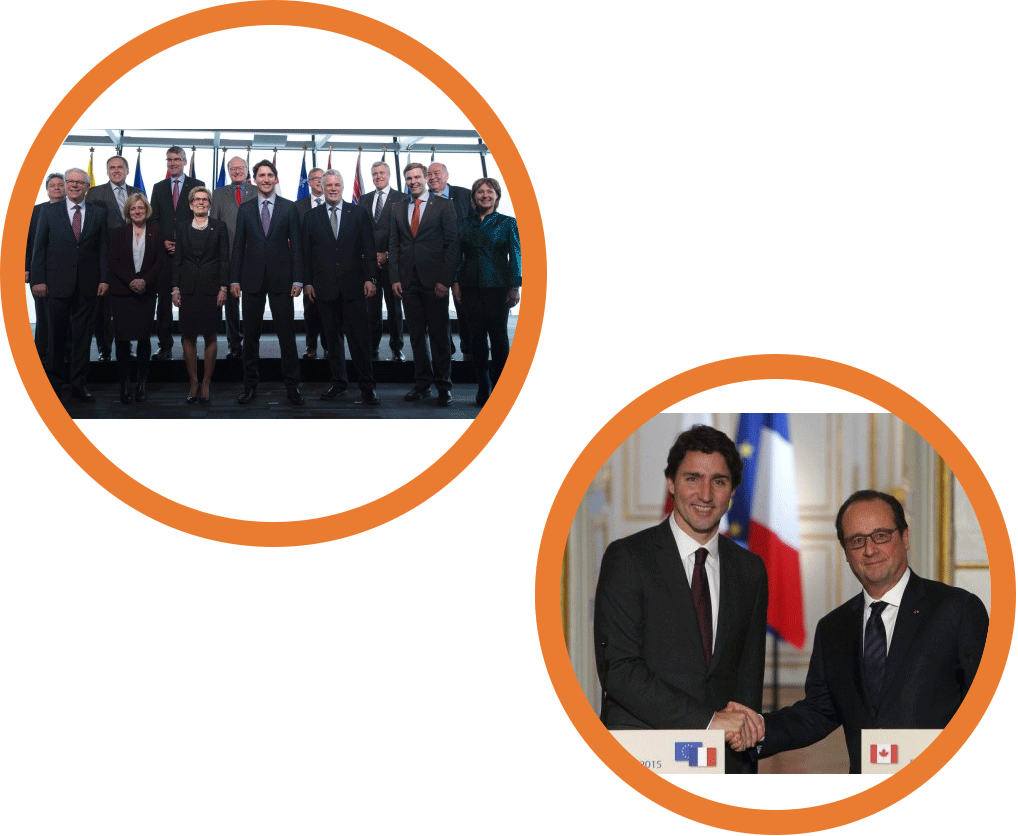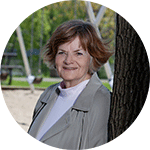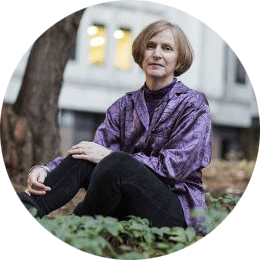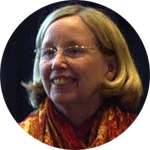Post COP21: Next Steps
|
Following the commitment of world leader to an aspirational limit in global temperature of 1.5 degree increase at the December 2015 COP 21 negotiations (UNFCCC, 2015), it is clear that we need to dramatically change our current development paths if we are to achieve this objective.1 What are the next steps for Canadian governments if they are serious about achieving a limit of 1.5 degrees increase and in a time frame that will make a difference for humanity? Are the scholars from Sustainable Canada Dialogues right that we can achieve a carbon neutral economy by 2050 through renewable energy? What kinds of policies and incentives have to be in place to accelerate the pace of change if we are to meet our commitments under COP21? How far does the Vancouver Declaration get us towards 1.5? |
 |
Click here to read the conversation
The e-panel included the following people who were in Paris in December 2015
| Elizabeth May, Leader of the Green Party of Canada, and Member of Parliament representing the southern Vancouver Island riding of Saanich-Gulf Islands. She is one of Canada's most respected environmentalists. As well, she practised law and is also the author of eight books. Elizabeth became active in the environmental movement in the 1970s. She is a graduate of Dalhousie Law School and was admitted to the Bar in both Nova Scotia and Ontario. |  |
 |
Professor Ann Dale, Principal Investigator MC3 research project Meeting the Climate Change Challenge, held a Canada Research Chair in Sustainable Community Development (2004-2014) at Royal Roads University, School of Environment and Sustainability. A former Trudeau Fellow Alumna (2004), she is a Fellow of the World Academy of Arts and Science, chairs the Canadian Consortium for Sustainable Development Research (CCSDR), a Board Member of the World Fisheries Trust. and the founder of the National Environmental Treasure (the NET). Current research interests include governance, social capital and agency, biodiversity conservation, place-based and virtual sustainable communities. She is a recipient of the 2001 Policy Research Initiative Award for Outstanding Contribution to Public Policy for her book, At the edge: sustainable development in the 21st century. Professor Dale is actively experimenting with research dissemination and social media, and has launched HEADTalks. |
| Professor Catherine Potvin, Professor, Department of Biology, McGill University, Québec, leader behind the seminal action plan Acting on Climate Change: Solutions from Canadian scholars, she is a plant biologist who specialized in tropical forest ecology and conservation. She is also very preoccupied by climate change and, with her research group, is passionately searching for solutions. These entail the study of land uses and the protection of forests in full respect for the people that live in or from them. For 20 years she has been collaborating and learning from Panama’s indigenous people. Catherine’s research areas include Biodiversity and Ecosystem Functioning, Livelihoods, Empowerment, and Biodiversity, REDD+: Carbon and Co-benefits, and Science to inform Climate Change Policy. |  |
 |
Yuill Herbert, Director of Sustainability Solutions Group, has worked as a member of SSG on sustainability consulting projects for over fifteen years; he pioneered land-use and GHG emission planning, helped introduce the LEED for Homes rating system in Canada and co-developed the Integrated Design Process course used throughout Canada and the US. Yuill has worked on or led more than forty community energy and GHG plans and models across Canada. He has leading expertise on climate change mitigation and adaptation - systems modelling that incorporates energy, GHG emissions and co-benefits. Yuill serves as a director on the boards of the Canada Research Chair on Sustainable Community Development, the Canadian Worker Cooperative Federation and Tatamagouche Community Land Trust. |
| Professor Leslie King, Co-Researcher MC3 research project Meeting the Climate Change Challenge, is Professor in the School of Environment and Sustainability at Royal Roads University in Victoria, Canada. She directs the Canadian Centre for Environmental Education and is program head of the Masters in Environmental Practice and Bachelors in Environmental Practice programs.Leslie has degrees from the University of British Columbia, York University, University of Toronto and the London School of Economics. Most recently she was the founding Chair of Environment at UNBC, Dean of the Faculty of Environment, Earth and Resources at the University of Manitoba and the Vice President Academic at Vancouver Island University. Leslie has developed many environmental programs in Canada, the US and Africa. Her research sites are primarily in Africa and the Arctic as well as First Nations and local communities in North America. She has supervised scores of Masters and PhD thesis students and takes delight in involving her students in her applied research and bringing research findings into the classroom. |  |
Resources and References
Acting on Climate Change: Solutions from Canadian scholars
U.S.-Canada Joint Statement on Climate, Energy, and Arctic Leadership
1. This need for change can be considered particularly critical in light of the fact that current Intended Nationally Determined Contributions (INDCs), seen by many as ‘reach’ targets for greenhouse gas (GHG) emission reductions, will still result in between 2.7 degree C and 3.0 degree C of global warming by century’s end (International Energy Agency, 2015). These plans fall short of the IPCC’s consensus target of 2.0 degree C, and well away from the COP commitment of 1.5 degree C, never mind what others claim is critical, a carbon neutral economy by 2050 (“B Team,” 2015; The Elders, 2015; WWF, 2011) ↩


